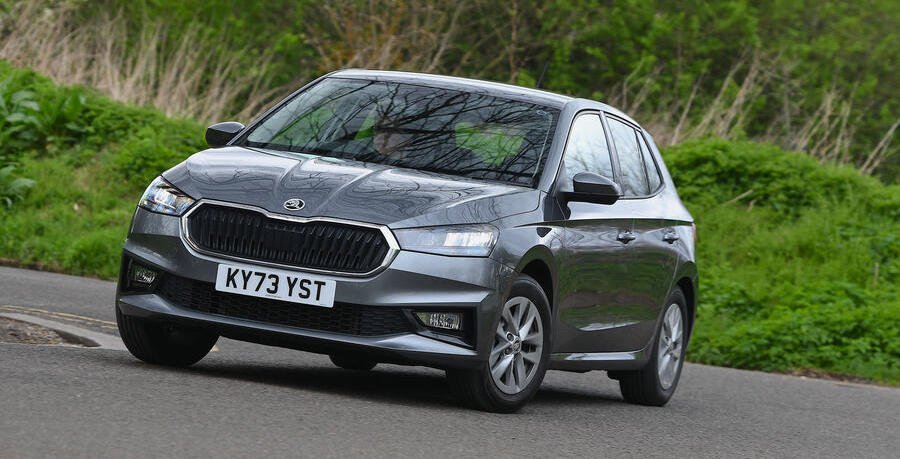Skoda extends small combustion car lifespans in EV slowdown

Skoda has delayed a crucial new electric car and extended the lifespan of its small combustion-engined models in response to waning demand for EVs across Europe.
The Czech brand had previously planned to launch six electric cars over the next two years: the new Elroq and Epiq crossovers, the production version of the Vision 7S concept, a 4.7m-long estate and facelifts for the Enyaq and Enyaq Coupé.
However, it has now decided to delay the estate – all but confirmed to inherit the Octavia name – until late 2027 or 2028.
Skoda CEO Klaus Zellmer told Autocar: “To be totally honest, with the slowdown of the transformation into battery-electric vehicles, we’re revisiting that [timeline].
“We're checking the sequence of those cars. The cadence now is we’ve had the Enyaq Coupé, the Elroq, the next one is the Epiq, and the next one down the line will be the SUV, the 7S you’ve seen the concept car of. After that – it could be 2027, 2028 – we’re aiming for an Octavia estate.”
Meanwhile, the petrol-powered Fabia supermini, Kamiq crossover and Scala hatchback have been given a stay of execution until 2030.
Zellmer said: “Originally, we said that we were going to phase out the Fabia, Kamiq and the Scala by 2027, but we have now green-lighted those cars to stay with us until the end of the decade, because the [EV sales] slowdown is happening as we speak.”
According to figures from European car industry body ACEA, electric cars’ share of the region’s new car market (including the European Free Trade Association and the UK) fell from 15.1% between January and August 2023 to 14.0% over the same period this year.
“We have always said that we would cater to what consumers want and not what we think is the right method of transport or drivetrain,” Zellmer said. “We always said we're going to try and be as flexible as possible.”
Zellmer attributed the shortfall in electric car sales to various factors, including failings in the charging infrastructure, range anxiety, the cost of electricity and the significantly higher price of EVs.
Indeed, Skoda marketing boss Martin Jahn conceded that the company is sacrificing its profit margin on the new Elroq to ensure it is priced at a level to attract strong sales – and therefore allow Skoda to meet its CO2 emissions targets for 2025.
“I admit that this is not the most profitable car in our line-up, and we just have to work on the costs, especially on the battery costs, to make the electric cars more profitable in the future,” said Jahn.
Zellmer also pointed to the lack of variety in bodystyles as a barrier to growing EV sales. He said: “I’ve always said people always buy cars for the least probable cause they need them for. So they buy a combi [estate] because they were at one point in time at Ikea, they had to put this huge box of a wardrobe in the car, so now they need a combi again.
“[Like] with range anxiety, this is totally emotional – it's not rational. Who exceeds a range of 350 miles on a regular basis? And even if you do, you do one charging stop in between, get the car down to 30%, charge it back to 60%, it takes you 15 or less minutes and off you go. It's not a problem.
“It's changing the habits, but people still find it difficult to change their behaviour towards battery-electric vehicles so we need to give people time to be ready for that, and this is why we offer alternatives.”
